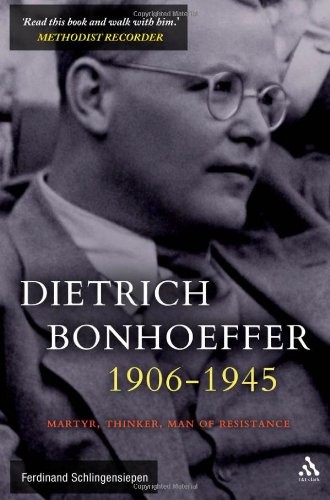Bonhoeffer demythologized
Dietrich Bonhoeffer has become
an almost mythical being, whose legacy everyone seems intent on claiming. From death-of-God
theologians to evangelicals to radical antiabortionists, partisans of all
stripes have remade Bonhoeffer in their own image.
His life story and theology,
however, are more complex than each of these efforts, taken separately, would
suggest. The papers and letters that emerged from his time in prison indicate
that at the time of his death he had entered into one of the most theologically
creative and provocative stages of any theologian in history. The musings of
this period have proven fruitful for several generations of theological work.
Bonhoeffer's story has been told
most fully by his friend and student, Eberhard Bethge, but Ferdinand
Schlingensiepen, who is a theologian, a founder of the International Bonhoeffer
Society and was a close friend of Bethge, has provided a new and definitive
biography that is full, fair, respectful and theologically sophisticated.
Schlingensiepen tells Bonhoeffer's story without claiming Bonhoeffer for a
particular contemporary ideological party or movement. He shows Bonhoeffer's
life in all of its complexity and makes good use of Bonhoeffer's collected
works.
We learn a lot about Bonhoeffer's
theological formation. His early focus was on ecclesiology, and although much
of his later work was practical in nature, it flowed from this commitment to
the study of the church. His involvement in the church struggle of the '30s and
then the struggle against Hitler in the '40s pushed him into reconceiving
theology for a new age. More than most theologians of his day, Bonhoeffer
realized that the old ways of being church and doing theology had begun to
collapse—and that something new needed to replace it.
Schlingensiepen's biography
honors a man whose legacy remains powerful by demythologizing Bonhoeffer and
letting the person behind the myth shine. I would suggest that readers also
turn to John Moses's The Reluctant
Revolutionary (read my review), which delves more
deeply into Bonhoeffer's challenge to the ideological roots of German
nationalism and anti-Semitism, and his postwar reception. Together, the two
books give a full-orbed picture of one of the most intriguing figures of modern
history and theology.






